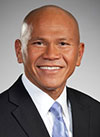
Lawyers and law firms are permitted to limit the legal liability in their law practices by forming their businesses in certain ways. SCR 20:5.7(a)(1) provides that a lawyer may be a member of a law firm that is organized as a limited liability organization solely to render professional legal services under the laws of Wisconsin, including Wis. Stat. chapters 178 (limited liability partnerships (LLPs)) and 183 (limited liability companies (LLCs)) and subchapter XIX of Wis. Stat. chapter 180 (service corporations (SCs)).
We published an article in 20131 providing information about the benefits and mechanics of setting up a law firm as a limited liability entity. This continues to be a topic of inquiry for Wisconsin lawyers looking to start firms. The mechanics and legal structure involved in starting a limited liability law firm remain largely the same, but the tax treatment of such entities was significantly affected by changes to tax laws in 2018. This article updates and expands upon our 2013 guidance.
Lawyers May Use Limited Liability Entities to Avoid Vicarious Liability
LLCs, LLPs, and service corporations all provide limited liability protections to their owners. Forming a law firm as a limited liability entity generally insulates its owners from the liabilities of the entity and of other lawyers. This includes liability for the general debts of the entity, contractual obligations of the entity, and the acts and omissions of other employees or agents (unless acting under the lawyer’s direction or control).
Limited liability will not, however, shield the lawyer from his or her own acts, errors, and omissions associated with performing his or her professional services.2 Although lawyers and firms want to limit their exposure for liability not only for themselves but also for their colleagues, individual lawyers always are legally responsible for their own professional negligence and for the negligence of individuals under the lawyer’s supervision and control.
Limited liability also does not shield the entity from the professional liabilities of its lawyers. A limited liability firm can still be held liable for the acts or omissions of its lawyers through respondeat superior or other theories. Failure to enact and maintain sufficient separations between the limited liability entity and its owners (for example, separate bank accounts and other corporate formalities) also can result in loss of limited liability protections.
Ownership and Tax Status Often the Driver
The decision whether to form a business as an LLP, LLC, or service corporation (the most common forms of limited liability law firms) is often based on the tax considerations of its owners, including, for service corporations, whether the owners prefer that the entity be taxed as a regular corporation or as a subchapter S corporation. Other considerations include who can be an owner of the firm and the scope of services the firm may provide.
 Joseph W. Boucher, U.W. 1978, is a CPA and a shareholder in Neider & Boucher S.C., Madison, practicing in business law, with an emphasis in emerging companies. He chaired the State Bar committee that originally drafted Wisconsin’s LLC law and is active with the committee working on the new LLC statute. He also coauthored LLCs and LLPs: A Wisconsin Handbook and Organizing a Wisconsin Business Corporation: Articles, Bylaws, and Other Forms, both published by State Bar of Wisconsin.
Joseph W. Boucher, U.W. 1978, is a CPA and a shareholder in Neider & Boucher S.C., Madison, practicing in business law, with an emphasis in emerging companies. He chaired the State Bar committee that originally drafted Wisconsin’s LLC law and is active with the committee working on the new LLC statute. He also coauthored LLCs and LLPs: A Wisconsin Handbook and Organizing a Wisconsin Business Corporation: Articles, Bylaws, and Other Forms, both published by State Bar of Wisconsin.
 John R. Rather, Marquette 2007, is an associate in Neider & Boucher S.C., Madison, practicing business, health, employment, and nonprofit law.
John R. Rather, Marquette 2007, is an associate in Neider & Boucher S.C., Madison, practicing business, health, employment, and nonprofit law.
 Ron Bote, CPA, MST, is a seasoned accountant with 25 plus years’ experience in public accounting and private industry focusing on business tax issues. He is a core leader of Wipfli’s growing technology industry practice.
Ron Bote, CPA, MST, is a seasoned accountant with 25 plus years’ experience in public accounting and private industry focusing on business tax issues. He is a core leader of Wipfli’s growing technology industry practice.
 Andrew Seifert, JD, is a member of Wipfli LLP’s National Tax Office, where he assists clients with complex tax issues, transactional advising, and overall business consulting.
Andrew Seifert, JD, is a member of Wipfli LLP’s National Tax Office, where he assists clients with complex tax issues, transactional advising, and overall business consulting.
Who Can Own a Law Firm. SCR 20:5.4(d) prohibits lawyers from practicing with or in a firm that is owned in any part by a nonlawyer. If the law firm is a service corporation, all owners must be licensed attorneys.3 Nonlawyers also are prohibited from serving as officers or directors of a law firm. For a service corporation, all officers and directors must have a law license, except that a service corporation with only one shareholder may have one officer who is a nonlawyer.4 This means, for example, that retired lawyers may not be able to remain board members or equity owners of a law firm that is a service corporation if they give up their license.
Scope of Services. Law firms are limited to providing legal services. SCR 20:5.7(a)(1) states that a lawyer may be a member of a limited liability law firm “solely” to render professional legal services. SCR 23.01 defines the practice of law as “the application of legal principles and judgment with regard to the circumstances or objectives of another entity or person(s) where there is a client relationship of trust or reliance and which require the knowledge, judgment, and skill of a person trained as a lawyer.”
Law firms also can provide law-related services, defined in SCR 20:5.8 as “denot[ing] services that might reasonably be performed in conjunction with and in substance are related to the provision of legal services, and that are not prohibited as unauthorized practice of law when provided by a nonlawyer.” Examples of law-related services include providing title insurance, financial planning, accounting, trust services, real estate counseling, legislative lobbying, economic analysis, social work, psychological counseling, tax preparation, and patent, medical, or environmental consulting.5 Such services remain subject to the Rules of Professional Conduct, and a lawyer must take reasonable measures to ensure that a person obtaining such services knows that the services are not legal services and that the protections of the client-lawyer relationship do not exist.
Tax Status. Which entity form is ultimately selected often comes down to a tax choice. In December 2017, Congress passed the most sweeping changes to tax law in nearly 30 years. Among the changes were a reduction of the corporate income tax rates to 21 percent and creation of a 20 percent deduction for small companies. The interaction of these changes with various income levels leads to a complex analysis. As the accompanying charts illustrate, if income is below the phase-out ranges, being a sole proprietor or partnership is preferable from a tax standpoint. But once the phase out is reached, corporate income tax rates and other provisions make corporate tax treatment more favorable. Upon reaching the income phase out, the significance of the tax benefit between an entity taxed as a partnership and one taxed as a corporation is reduced as income increases.
Single-owner law firms set up as LLCs can enjoy both the tax benefits of a sole proprietorship and the limited liability protections of an LLC. This is because a single-member LLC is a disregarded entity essentially treated as a sole proprietorship for tax purposes but remains a separate limited liability entity for liability purposes. This makes LLCs an obvious choice for single-owner law firms. Multi-owner law firms can be taxed as a partnership or a corporation (S or C) depending on the entity form and elections filed. As noted above, which form enjoys better tax treatment will depend on individual circumstances. Lawyers should consult their tax advisor to determine which entity choice is best for them.
Moreover, although the revenue of both an LLC and a service corporation (if the S.C. has made an S election) will pass through to its owners, owners should be careful to observe adequate separation between the entity and the individual’s personal activities to prevent disregarding of limited liability. This includes maintaining separate bank accounts, avoiding commingling of assets, differentiating execution of documents on behalf of the entity versus in a personal capacity, and observing corporate formalities (especially if structured as a service corporation).
Currency of Laws. The limited liability partnership law (Wis. Stat. chapter 178, subch. IX) was updated in 2015, and the LLC law (Wis. Stat. chapter 183) is slated for update in the near future. Obviously LLPs are not an option for single-owner law firms. The authors prefer LLCs because the current law is a bit more robust than the LLP law and less cumbersome than the service corporation law. Planned updates to the LLC law are likely to increase this further. However, all three options present viable choices for multi-lawyer firms.
Learn More
Lean more about advising small businesses at the State Bar Solo & Small Firm Conference, Oct. 24-26 in Wisconsin Dells. Saturday’s session includes:
- Advising Small Businesses Regarding Tax Liability
WISBAR.ORG/WSSFC
<iframe src="//www.youtube.com/embed/P4pURI22_KQ" width="525" height="295" frameborder="0" allowfullscreen></iframe>
The Mechanics of Forming a Limited Liability Entity
Under SCR 20:5.7(b) and State Bar of Wisconsin requirements, lawyers and law firms must annually register limited liability organizations (including LLCs, LLPs and service corporations) with the State Bar. The registration form must be signed by a lawyer who is licensed to practice law in Wisconsin and who holds an ownership interest in the entity seeking registration.
Meet Our Contributors
Why do you do what you do? What's the best advice you ever received? Share your weirdest courtroom story...
Lawyers have a lot to say. Our authors are no exception. Whether its personal, insightful, or fun, it’s always interesting.
Check out our Q&A with the author below
The registration must include 1) the name and address of the limited liability organization being registered; 2) the name of the state or jurisdiction in which the entity is organized if not Wisconsin; 3) the attorneys’ names, home addresses, states or jurisdictions where licensed to practice law, attorney registration numbers, and nature of ownership interests (such as partner or shareholder) in the firm; and 4) proof of liability insurance. The registration form, along with the certificate of malpractice insurance, must be submitted to the State Bar of Wisconsin, accompanied by a registration fee of $75 (for the initial registration) or $25 (for later years). The registration is effective July 1 through June 30 of each year. Registration forms are available here.
Limited liability entities must carry professional liability insurance. SCR 20:5.7(bm) sets forth a scale of law-firm minimum-insurance requirements, based on the number of lawyers in the firm, ranging from $100,000 per occurrence/$300,000 in the aggregate for a solo practitioner to $10 million per occurrence/in the aggregate for the largest law firms. Proof of liability insurance must accompany the annual registration submitted to the State Bar and must include the name of the professional liability carrier, the policy’s number and expiration date, and the limits of liability and deductible.
Law firms organized as limited liability organizations must include a designation of that limited liability structure as part of their names. This requirement has led to wide varieties of usage. Some firms specifically say they are limited liability entities in addition to using LLC, LLP, or S.C. in their names. Others do not add any reference to the limited liability status other than by using the LLC, LLP, or S.C. designation.
SCR 20:5.7(e) also requires that law firms and lawyers provide a summary notice to clients and potential clients of the features of the law firm’s limited liability. Typically, a firm that has limited liability includes this notice in its engagement letter.
More Solos and Firms Should Take Advantage of the Protections Afforded
Despite the benefits of forming as a limited liability entity, the number of lawyers forming entities each year is still relatively small. More than 24,900 lawyers are licensed in Wisconsin. There are approximately 3,900 law firms (2,748 are solo practices consisting of only one lawyer). There are 4,289 limited liability business entities registered with the State Bar (989 service corporations, 1,953 LLCs, and 1,347 LLPs). We do not know how many LLCs are single-member LLCs. We also do not know how many firms are sole proprietorships, but any single-owner law firm not structured as an LLC should give consideration to doing so. Smart decisions in formation or restructuring can allow lawyers to benefit from tax treatment close to that of a sole proprietorship while still enjoying limited liability protections. If you’re thinking about going solo or forming a firm, consider protecting yourself from the liabilities of your business by organizing as a limited liability entity.
Business Entity Tax Comparisons: C Corp, S Corp, Partnerships/LLCs, Sole Proprietor
By Ron Bote & Andrew Seifert of Wipfli LLP
Entity Selection |
Entity Type |
C Corporation |
S Corporation |
Partnership (including LLC) |
Sole Proprietor |
Current Tax Rates* |
Flat rate 21% |
Individual rates
10%-37% |
Individual rates
10%-37% |
Individual rates
10%-37% |
Prior Tax Rates |
Graduated rates of 15%-35% |
Individual rates
10%-39.6% |
Individual rates
10%-39.6% |
Individual rates
10%-39.6% |
Dividend Rate |
23.8%
(including 3.8% net investment income tax) |
N/A |
N/A |
N/A |
199A Deduction** |
N/A |
20% |
20% |
20% |
Combined Effective Rate*** |
39.8%
[(100 x 21%) + (79 x 23.8%)] |
29.6%
[(100% - 20%) x 37%] |
29.6%
[(100% - 20%) x 37%] |
29.6%
[(100% - 20%) x 37%] |
Type of Tax |
Double layer |
Pass-through |
Pass-through |
Individual |
Additional Considerations |
Risk of additional 20% accumulated earnings tax |
199A deduction does not apply to income received by S corporation shareholder through reasonable compensation |
199A deduction does not apply to income received by partnership member through guaranteed payments |
|
*Rates included in this discussion are reference to federal tax rates and do not include state and local tax rates.
**199A deduction is generally not available to specified service trade or business (SSTB). SSTB includes fields of health, law, accounting, actuarial science, performing arts, consulting, athletics, financial services, brokerage services, or any trade or business where the principal asset of such trade or business is the reputation or skill of one or more of its employees. There is an exception to the exclusion if the taxpayer's taxable income is less than $315,000 (married filing joint.) However, the deduction is phased out if taxable income is more than $415,000 (married filing joint).
***Table assumes taxpayer is in top marginal bracket.
Comparison of Entities - SSTB* |
Entity Type |
C Corporation |
S Corporation |
Partnership (including LLC) |
Sole Proprietor |
Business Income (before W-2/GP Deduction) |
$200,000 |
$200,000 |
$200,000 |
$200,000 |
W-2 Wages or
Guaranteed Payment |
$80,000 |
$80,000 |
$80,000 |
N/A |
Corporate Tax = 21% |
$25,200 |
N/A |
N/A |
N/A |
Net Income |
$94,800 |
$120,000 |
$120,000 |
$200,000 |
Qualified Business Income |
N/A |
$120,000 |
$120,000 |
$200,000 |
199A Deduction = 20% |
N/A |
$24,000 |
$24,000 |
$40,000 |
199A Limited |
N/A |
N/A |
N/A |
N/A |
Dividend Tax |
$14,220 |
N/A |
N/A |
N/A |
After Tax Cash Flow |
$141,380 |
$157,760 |
$157,760 |
$161,600 |
*Example only represents federal tax effect. Assumes that the taxpayer files as married filing joint and is an owner of a specified service trade or business and does not take into consideration self-employment tax.
Comparison of Entities – SSTB (Between and Over Phase-out Range)** |
Entity Type |
Partnership (income in phase-out range) |
C Corporation |
Partnership (income over phase-out range) |
C Corporation |
Business Income (before W-2/GP Deduction) |
$365,000 |
$365,000 |
$415,001 |
$415,001 |
W-2 Wages or
Guaranteed Payment |
$80,000 |
$80,000 |
$80,000 |
$80,000 |
Corporate Tax = 21% |
N/A |
$59,850 |
N/A |
$70,350 |
Net Income |
$285,000 |
$225,150 |
$335,001 |
$264,651 |
Qualified Business Income |
$285,000 |
N/A |
$335,001 |
N/A |
199A Deduction = 20% |
Limited
(based on income) |
N/A |
Phased-out
(based on income) |
N/A |
199A Limited** |
$28,500 |
N/A |
$0 |
N/A |
Dividend Tax |
N/A |
$33,773 |
N/A |
$39,698 |
After Tax Cash Flow |
$284,240 |
$247,378 |
$315,401 |
$276,953 |
**The example assumes that the W-2 wage limitation does not apply. $36,500 = (($365,000 - $315,000) / $100,000) x ($365,000 x 20%).
Meet Our Contributors
What’s the best career advice you ever received?
 When I was a young lawyer, three different lawyers provided meaningful advice that greatly influenced my career.
When I was a young lawyer, three different lawyers provided meaningful advice that greatly influenced my career.
One lawyer told me that we have to continuously enhance our legal skills. Another lawyer said that, while at that time, I may know more than he did, clients inherently respect experienced attorneys. And a senior lawyer emphasized patience, because time can benefit your career if you work at it.
My takeaways were that with patience and hard work one could become a valued legal advisor for clients.
Joseph W. Boucher, Neider & Boucher S.C., Madison.
Become a contributor! Are you working on an interesting case? Have a practice tip to share? There are several ways to contribute to Wisconsin Lawyer. To discuss a topic idea, contact Managing Editor Karlé Lester at (800) 444-9404, ext. 6127, or email klester@wisbar.org. Check out our writing and submission guidelines.
Endnotes
1 Joseph W. Boucher & Jennifer L. Knudson, Choosing a Limited Liability Entity: Which Form Is Best for Your Law Firm?, 86 Wis. Law. 14 (July/August 2013).
2 SCR 20:5.7(b).
3 Wis. Stat. § 180.1903.
4 Wis. Stat. § 180.1911.
5 SCR 20:5.8, Comment 9.
